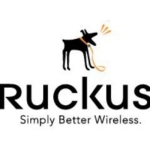What is our primary use case?
The primary use cases of this solution include home use and hospitality, for example: small cafes, etc. It's used in most small businesses where they just need a few ITs and they need simple management, which also means that they're not too worried about the security.
What is most valuable?
Cost is a big value to the customer and that's the main thing with Ubiquiti Wireless. They don't really have any features that stand out, that would distinguish them from other vendors, so it's all about their pricing. The most attractive thing about them is their cost.
What needs improvement?
What would make this solution better is improved security. Nowadays, with consumer and enterprise level, most of the access points that I work with, e.g. Aruba, Cambium, or Ruckus, etc., they have firewalls built into the access points and they can do deep packet inspection of data coming through the access point. This gives you the ability to identify applications and you can secure and manage based on application. Ubiquiti Wireless is already simplified, so they don't do that.
The performance of Ubiquiti Wireless also needs some improvement. Though performance is very difficult to quantify because if it's performance based on one or two access points in a home, Ubiquiti Wireless is fantastic, but their performance is lacking in large environments. They end up creating problems in larger environments.
I've had people put this in and because Ubiquiti Wireless doesn't solve tune and they weren't capable of tuning it themselves, they ended up with six access points, but the power and the channel assignments have been all wrong, so they haven't been getting any benefit out of the access points.
Ubiquiti Wireless also tends to turn the access points up to the maximum power, and if you're designing an enterprise network, you need to actually turn the power down on your access point and increase the density of your access points to give proper performance improvements. They're not an enterprise product. They're a home and consumer and small business product.
Scalability is an issue. Ease of manageability at scale is also an issue. For example, looking at one of its competitors: Aruba, you can easily scale that to 500 to a thousand access points and still have it all under control.
You also have the ability to do software-defined wireless networking with competitors of Ubiquiti Wireless, which is something you can't really do with Ubiquiti. Ubiquiti Wireless is a point solution.
I have a long list of things that they've got to do to improve the product. There's so many things that they need to do. One of the things that is quite important is that they get rid of the cloud key and have smart insight and access points.
With the other vendors, you buy the access points, then access the virtual controller which will give you that connection into your cloud management. With Ubiquiti Wireless, you have to buy a separate cloud key, or you have to run a separate software server, or you have to buy a Dream Machine Pro or a Dream Machine just to manage your network remotely. They need to move away from that and move to clustering and Virtual Controller in their IP.
For how long have I used the solution?
I've been working with Ubiquiti Wireless for two years.
What do I think about the stability of the solution?
If I we're to rate the stability of Ubiquiti Wireless, I'll rate it a six out ten. They have a reputation of crashing when you do a firmware update sometimes.
What do I think about the scalability of the solution?
Ubiquiti Wireless is not easy to scale. Scalability is a problem. Get your five AP (access points) and you're fine, but if you want to put 50 AP, you'll have a big problem. It's not scalable.
Another thing is from the management perspective with cloud keys and the way that they use cloud keys, it isn't scalable.
It's also not multi-tenanted, so you can't really use it. When you have multiple branches and sites, management becomes a big problem.
How are customer service and support?
Ubiquiti Wireless doesn't have any support that you can call. I've used their online support and it's not great. Part of their value proposition is they're super cheap because there's no tech that you can call. You can't find an engineer to speak to, or to help you.
A lot of the support is done through the online portal, so if you want technical answers on how to fix issues, you have to go to the community. After everything's installed, they make people figure out issues and solutions for themselves. Their support documentation is not fantastic.
How was the initial setup?
Setting up Ubiquiti Wireless is very simple, very basic.
To set up a network: getting access points installed, and depending on what I was using for a firewall, and getting an SSID secured and set up, it takes 20 to 30 minutes. That does not include mounting it anywhere, but just getting it out of the box, connecting it to a switch, then actually getting it configured. It's straightforward.
What's my experience with pricing, setup cost, and licensing?
The price point for Ubiquiti Wireless is really good.
Which other solutions did I evaluate?
I've worked with Aruba Networks Wireless WAN, Cambium, and Ruckus Wireless WAN.
What other advice do I have?
I'm a wireless specialist. That's what I do. I design wireless and put them in.
Deployment of Ubiquiti Wireless depends on the customers, but it's not deployed on my premises. I sell it and I design it. I'm an engineer who designs for customers, so we deploy it in different scenarios, but mostly it's deployed into the small business type of environments.
This solution requires regularly maintenance. You have to do firmware updates, and that's it.
My advice to people looking into using this product is that first of all, it would depend on what they are doing. What type of network implementation are they going to do?
Before I give advice, I would be asking a lot of questions. If Ubiquiti Wireless will be used in an educational institution, or in an institution that requires a higher level of security, or one that requires ease of management or good scalability, I will tell them not to use it.
If it will be used in a little cafe and they want to put two access points in, and they want a little guest network that people can sign in, and they want people to be able to log in through Facebook, etc., then using Ubiquiti Wireless will be fine.
Ubiquiti Wireless is a seven out of ten for me, because of its target market, and it does what it's supposed to do in the market it's supposed to be in. It's really good for its price point and for its target market.
I work with Ingram Micro and we sell a large amount of Ubiquiti Wireless, and there's a lot of SME that use them quite successfully. It's just that large implementations can become a huge challenge with this solution.
Disclosure: My company has a business relationship with this vendor other than being a customer. Reseller













